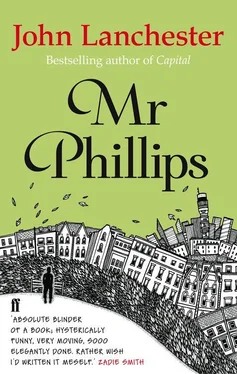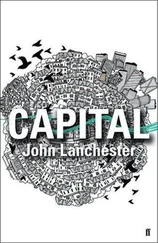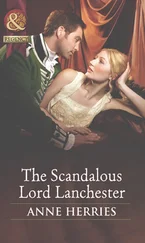‘Clothes are a sign of the Fall not because they conceal our God-created nakedness but because they provoke desire,’ says a Caribbean woman’s voice immediately behind Mr Phillips’s right ear. He turns around. It is the Jehovah’s Witness, who has been watching him watch the girl and is now looking at him with real hostility.
‘Sorry,’ says Mr Phillips.
Most of the younger people seem to have arrived independently, on foot and via public transport. Older people come in coach parties. A seventyish couple, looking very thoroughly used to each other, are leaning together puffing as they recover from having climbed down the steps of their coach. On the steps outside the front of the museum several dozen younger people, foreign-looking (darker skin, different clothes), are sitting chatting, gossiping, smoking, picking each other up, looking at guidebooks and what’s-on magazines, eating crisps and sandwiches and drinking soft drinks, or just staring into space. One girl, whose bobbed black hair circles down at the corners of her face as if putting her expression in brackets, is methodically blowing bubble gum. Mr Phillips remembers that feeling of waiting for something to happen, so strong when we’re young and so hard to recapture afterwards, just as boredom could be like a physical pain while it was happening but was impossible to recover through memory.
Many of the people sitting on the stairs look little more than children. They are certainly a lot younger than Mr Phillips had been before he had any comparable freedom. When Martin went off on his first holiday with friends, at the age of seventeen, Mr Phillips had felt a stab of fear and pity for his youth and vulnerability. Two years (it felt like two minutes) later he was Railcarding around Europe on his own, getting up to who knew what who knew where with who knew whom. It was a hard time for Mr and Mrs Phillips, who had had their patience tested to destruction during Martin’s teenage years. These began late — he had been easygoing and affable right up until he turned fifteen — and then made up for it with the intensity of his fuckedoffness. The anxiety they felt when he travelled was a half-welcome reminder that they did, in fact, after all, love him. Mr Phillips had noticed at the time that as children we all occasionally wish or fantasize that our parents were dead — but the reverse doesn’t apply.
Martin’s six-week trip yielded them four postcards, each of which brought with it a specific and vivid set of worrying images (Amsterdam: drugs! Copenhagen: Aids! Berlin: skinheads! Athens: pollution!), and a single telephone call, from a village in Greece where the only payphone was broken, enabling people to call anywhere in the world for free. He came back with a short and neat beard that had unexpected red bits at the corners of his mouth. That and his eerily deep tan made him look a good five years older. After that trip he was never quite as angry, or as dismissive, or as sullen, or as close to them; it was when he began to leave home. Mr Phillips can’t help wondering what’s in store for the parents of all these children. Somewhere each of them has someone worrying themselves sick.
As in a film or an advertisement, a boy travelling at speed hurtles up the steps past Mr Phillips and down on to the step beside the girl with the Louise Brooks bob and begins kissing her energetically. Mr Phillips has to look away before he finds out what happens to the bubble gum.
For a moment Mr Phillips thinks about queuing for the big exhibition. But long queues, which are always the closest imaginable thing to being dead, are probably not a good idea today. So instead he weaves up the steps and through the revolving doors, behind a waddling man in trainers and a sunhat whose enormous jeans are hitched up to his sternum, and goes into the main gallery.
It is immediately cooler and more noisy than the city outside. Some people are standing in front of the table where bags are being, not very convincingly, searched by a pair of guards in amateurish uniforms which look as if they had been made on a sewing machine at home. This will be all about bombs, presumably, one of those London things you get used to, unless it was also to scan for nutters who wanted to carve paintings up with Stanley knives or spray paint on them or set light to them or whatever. Chop them up with a machete until cornered by the underpaid, half-asleep guards. I’ll take two of you with me!
Mr Phillips goes over to the searchers. In a gesture that feels vaguely sexual, he opens his briefcase and invites them to rummage in it. One of the guards looks and languidly moves a manila folder out of the way with a gloved hand. The folder contains a thick pad of the A4 graph paper ruled into 1 mm squares that Mr Phillips likes to use for taking notes and calculations. This particular pad contains the left-over sums for the Post-It Note memo, and a first draft of some sums he made about his and Mrs Phillips’s financial position when he had first heard that he had been made redundant. The other objects in the briefcase are: a calculator; a plastic ruler; a plastic box — a ‘pocket protector’ — with two HB pencils, a sharpener, a Rotring fine-nibbed technical drawing pen, and two black Bic biros; his Wilkins and Co. desk diary, which he has taken from his office and forgotten to remove from his briefcase; a spare tie with yellow and green horizontal stripes, a Christmas present from Thomas three years ago, ditto; a Wilkins and Co. pocket diary; an empty hip flask that Mrs Phillips gave him for emergencies, which he keeps in the briefcase for sentimental reasons only, since when it was full it leaked and made his papers smell of whisky; his office toothbrush, which has a useful little cap to stop it smearing paste everywhere; Bobby Moore’s autobiography; a silver-plated letter opener that he inherited from his father and which he, like his father, never uses; a small packet of tissues; his copy of the Daily Mail; two packets of Post-It notes.
The guard looks at all this without any sign of curiosity or recognition. He nods at Mr Phillips, who takes that as a sign to close the briefcase.
*
Mr Phillips walks into the first rotunda inside the gallery and takes a floor plan out of the plastic holder. Then he decides he would prefer to wander aimlessly around and puts the map back; it doesn’t seem right to take something for nothing, especially if he isn’t going to put the something to any use. Anyone who has any memory at all of the forties in Britain has a different attitude towards waste than anyone who doesn’t. Mr Phillips was nine when rationing ended and can still remember the atmosphere of straitenedness and not quite privation. It is odd to think that he has only moved about three miles from where he lived then, in a middle-of-terrace house with his parents and his two-years-older sister. Because films of the period were always in black and white it sometimes seems that his memories are black and white too, especially his only real war memory, which has to do with the bomb damage that took years to repair. They were far enough from the docks to have been spared a lot of it, but Mr Phillips feels as if he can still remember — it is on the cusp between a real memory and something he has been told about so often he can see it — the way some homes had been turned inside out, excavated or split open like dolls’ houses, so that you could see a mirror askew with its glass shattered but its gilt frame intact still hanging in an upstairs bedroom, with the rest of the floor melting downwards and outwards like a partially eaten gingerbread house; or the way the ruined kitchen was open to full view; or the beams and pipings which made it look as if the house were spilling its guts. All the inhabitants had died, some of the 30,000 Londoners who died in the bombing. This is a number about which he sometimes thinks, and compares with other numbers when they come in books or TV programmes or newspaper articles. It could be expressed mathematically: 30,000 (Londoners killed in the blitz) < 42,000 (Germans killed in Hamburg fire storm) > 32,000 (number of U-boat sailors who died) < 2,800,000 (Russian POWs who died in German prison camps) > 78,000 (Japanese killed in the bombing of Hiroshima) < 2,200,000 (Chinese who died during the Japanese invasion) > 90,000 (Americans who died in the war in the Pacific) < 395,000 (British and Commonwealth dead in the war) < 1,000,000 (British and Commonwealth dead in World War One) > 60,000 (British dead on first day of the Somme) > 26,000 (US dead in battle of Guadalcanal) < 30,000 (American airmen based in East Anglia killed in daylight bombing raids on Germany) = number killed in London in the Blitz. The thing was that about half-way through doing the sums you went sort of numb and the numbers ceased to be anything other than numbers, as also happened when dealing with sums of money not your own, even if you were a trained accountant.
Читать дальше




![Unknown - [Carly Phillips] The Bachelor (The Chandler Brothe(Bookos.org) (1)](/books/174132/unknown-carly-phillips-the-bachelor-the-chandle-thumb.webp)







